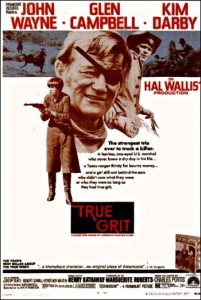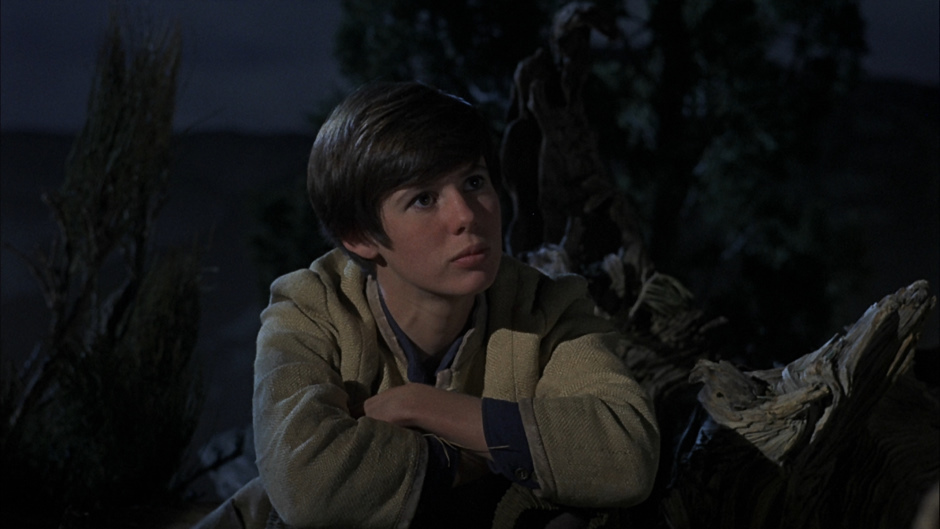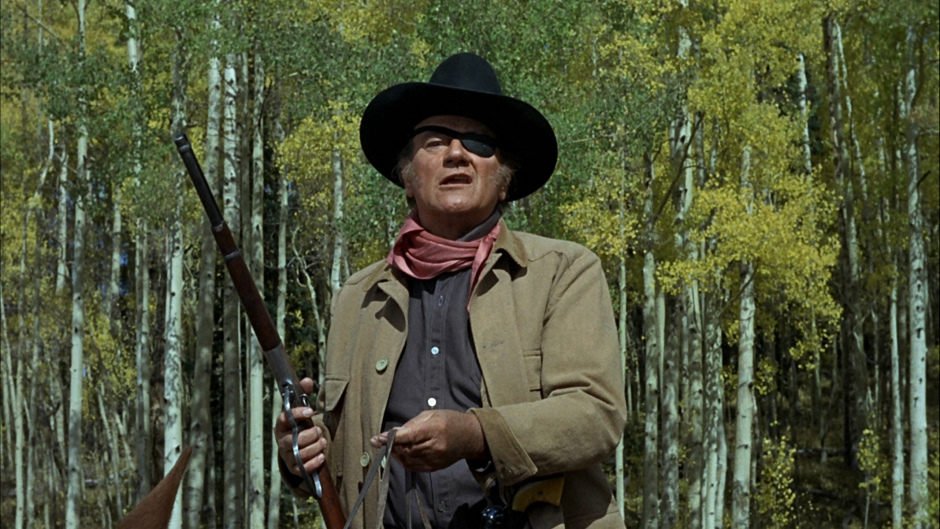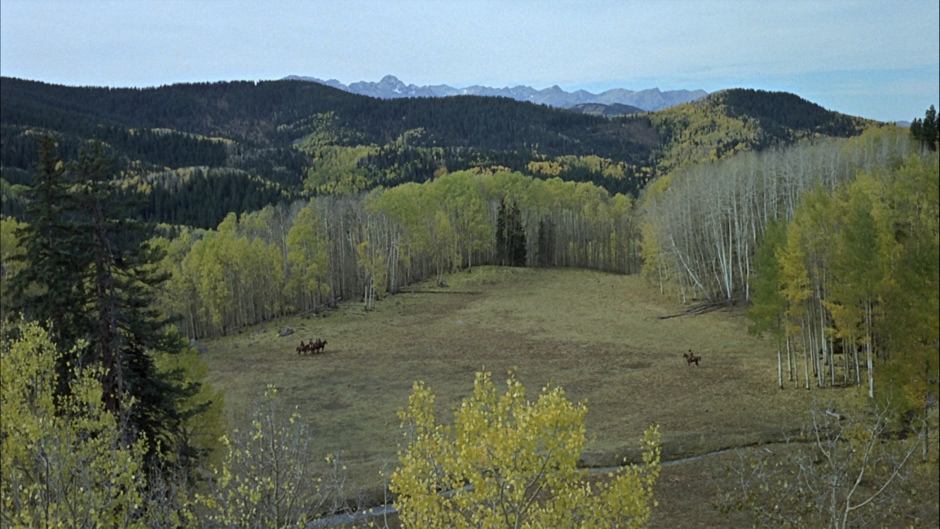True Grit (1969)
“She reminds me of me!”
|
Synopsis: |
|
Genres, Themes, Actors, and Directors:
Review: Wayne, for his part, is eminently memorable as drunken, one-eyed Rooster Cogburn, a lawman beyond his prime who nonetheless is exactly the man-for-hire Mattie aims to secure. He and Darby have such fine rapport together on-screen that it’s astonishing to learn he hated working with her, and considered her a poor actress. Their final scene together is particularly touching. As La Boeuf, the Texas Ranger who accompanies Cogburn and Mattie on their quest, country singer Glen Campbell, rounds out the odd trio nicely; he won a Golden Globe nomination as Most Promising Newcomer (though his film career never really took off). Meanwhile, Lucien Ballard’s expansive cinematography is consistently a widescreen treat to behold, and Marguerite Roberts’ screenplay is smart and literate, full of plenty of memorable dialogue. Watch for Robert Duvall and Dennis Hopper in small roles as gangster Ned Pepper and his henchman, Moon; they’re both quietly menacing. Note: This film was followed in 1975 by Rooster Cogburn, an original sequel starring Wayne and Katharine Hepburn (though it’s not listed in Peary’s book, and I haven’t seen it, so I can’t vouch for it — yet — as any kind of Missing Title). Redeeming Qualities and Moments:
Must See? Categories
Links: |




One thought on “True Grit (1969)”
Not a must – although it has its good points. On this first revisit since its initial release (obviously, I have not been drawn back), it’s noticeable to me that the first half of the film is particularly slow and overly talky (often needlessly). Generally speaking, ‘TG’ doesn’t take off til midway (the scene featuring Hopper and Jeremy Slate; which is well done). Thereafter, pacing once again slackens until the last half-hour when (finally and satisfyingly) the plot grows into a first-gear development. (Arguably, the last half-hour in this version beats that of the remake.)
What really drags the film overall is the acting by the three leads. It’s more like tv acting than film acting – nuance is all but absent and lines are often delivered with little thought behind them. (For example, in one scene Darby wakes Wayne up supposedly after a heavy night of drinking, yet he wakes up easily as if he hadn’t had a drink at all.) These three performances aren’t outright bad, just not convincing enough. (I believe Wayne’s Oscar was awarded out of recognition of his longevity in the business. He never had much real range as an actor, though occasionally he could seem more invested: ‘The Searchers’, ‘The Quiet Man’, etc.)
By comparison, note Strother Martin as the horse trader in an earlier part of the film. He’s acting rings around everyone up to that point, giving us a deliciously good turn. Hopper, Duvall and Corey also do rather well in small but significant roles.
Best line is Wayne’s: “Fill your hand, you son of a bitch!”
While watching the Coen Brothers’ remake, I was reminded of something John Waters once said: never remake a film that worked the first time out. To me anyway, ‘TG’ did not work the first time out. The remake is much more successful – even if it also has a few drawbacks. DP Roger Deakins knows his job (done well here) is to help with the storytelling (as opposed to Ballard, who seemed ‘content’ to just photograph nature). Composer Carter Burwell also augments nicely (as opposed to Elmer Bernstein, who offered a particularly intrusive score for the original).
In terms of the acting, there’s an odd turnaround: whereas the three leads are rather impressive in the remake, the main supporting players – while natural in behavior – aren’t as memorable as those in the 1969 version.
The remake is about 20 minutes shorter then the original – therefore tighter, even if it also suffers from some pacing problems. It also tacks on a coda taking place forty years later – an ending which is not as effective as the original’s.
Not being a huge fan of westerns (as I’ve noted before), I’m tough on them. I want to be made to sit up and take notice. Neither version of ‘True Grit’ makes me do that. But I recognize that both have strengths.